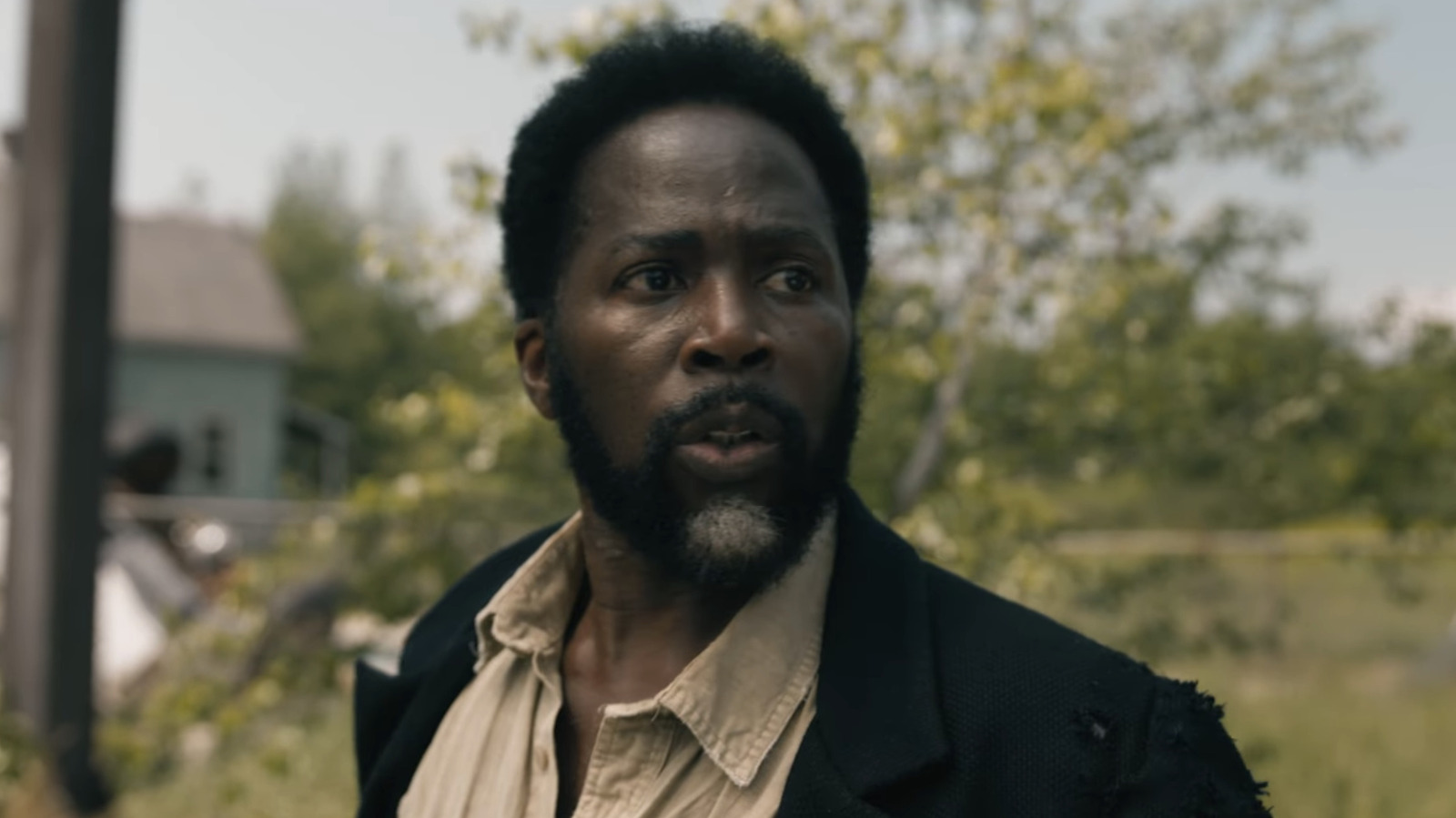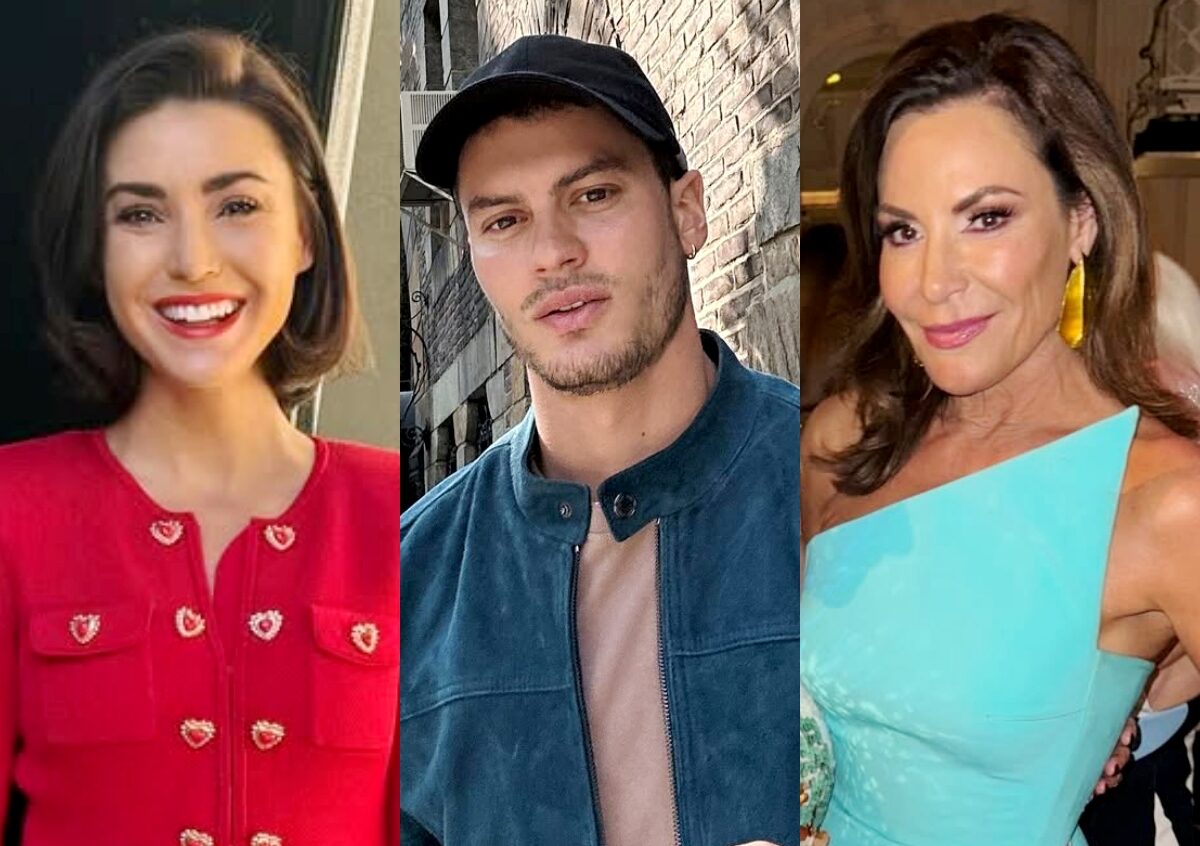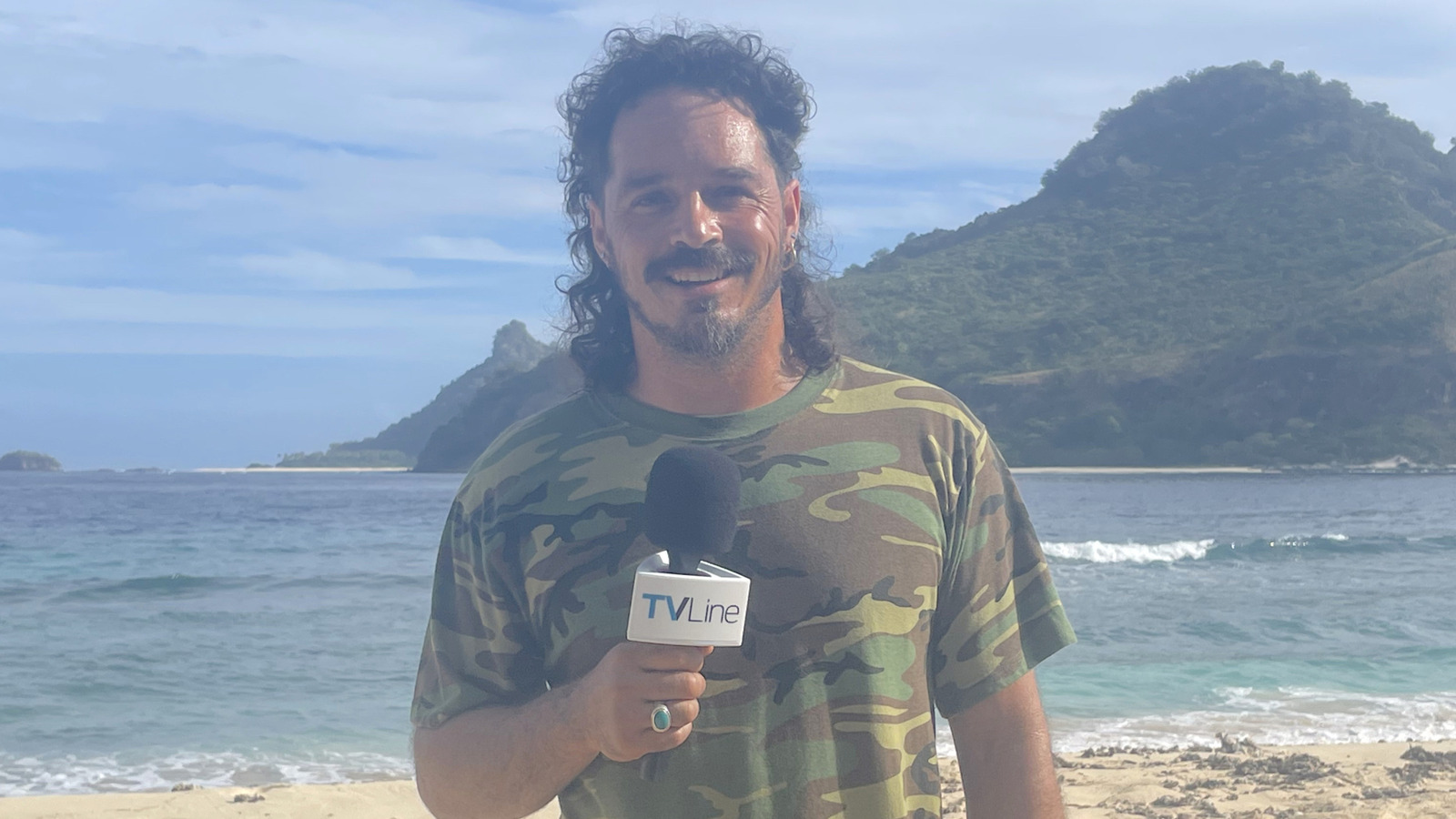The Fallout game series was one of the pioneers of GenX and Millennial storytelling.
When creators Tim Cain and Leonard Boyarsky created a post-apocalyptic vision of human civilization gone awry (but never one to lose its sense of humor), the open world narrative eschewed labels of Good and Evil.
The Fallout universe was made of multiple factions, each one selfish, every character a survivalist in their own way.
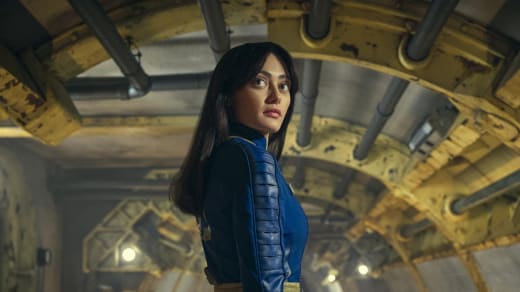
These political and social plots explored the diversity of human thinking, teaching us concepts of anarchy that were foreign to even 1990s American cinema.
Now that the Fallout series on Prime based on the Bethesda game has debuted, it has the nearly impossible task of trying to humanize a game that was all but designed to escape humanity.
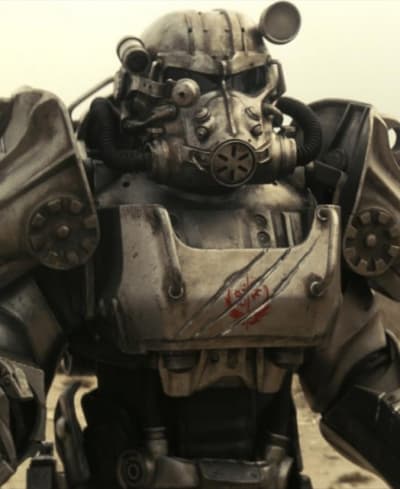
The show is a big hit and most likely the best video game to TV show adaptation we will ever see, thanks to the clever mind of Jonathan Nolan.
Of course, the only way we, as TV fans, can understand these Fallout characters we’re eager to love or hate is to classify them somewhere on the Spectrum of Morality, which serves as a pretty good guide for RPG games, video, or tabletop.
Nobody is entirely good or evil in RPG games, but there are shades of Good and Bad that can keep us invested in the story.
Luckily, we have the classic Dungeons and Dragons “Alignment Chart Ranking” to help us organize, label, and dissect the main cast of Fallout.

Without getting into the philosophy behind tabletop RPGs, let’s say every character, in theory, falls somewhere in the spectrum of these two axes:
And
We’ll start with the most obvious examples and then consider a few rogues.
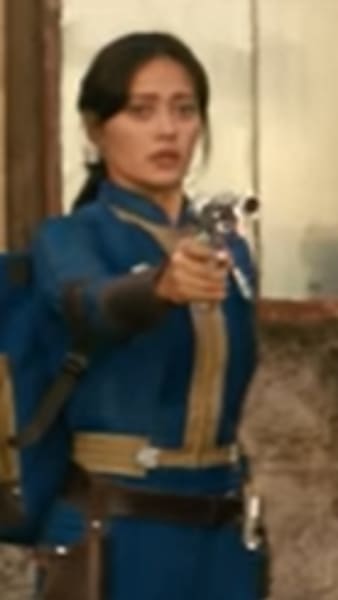
Lucy MacLean: Lawful Good
The young anime-faced Vault Dweller is the clear winner of the “Lawful Good” prize. Lucy MacLean was not only born into a protected underground civilization of “Good” Vault dwellers (who carry on like home-schooled kids or bible students), but she also has an incorruptible spirit.
When she leaves the comfort of her Vault behind in search of her kidnapped and possibly dead father, she enters a surface world that is amoral, violent, and untrustworthy.
But even when confronted with the worst of humanity and the most duplicitous of creatures, human and not, she upholds Vault Dweller’s philosophy and the “Golden Rule” of “Treat others as you want to be treated because they literally ARE you.”
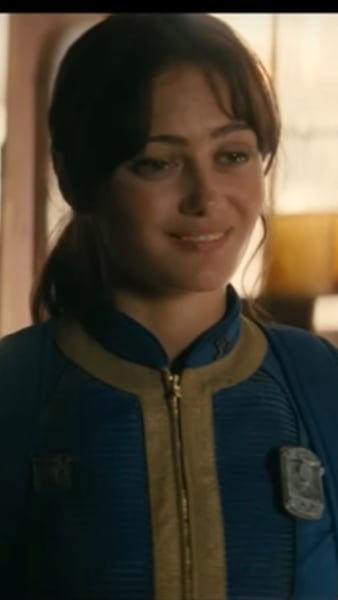
In one of the most riveting scenes of the first season, Episode 4, “The Ghouls,” she shares some words of wisdom with her disfigured enemy, who’s treated her like a gore bag.
“I may end up looking like you…but I’ll never be like you.”
The show’s heart lies in watching Lucy’s gradual transformation as she learns the way of the world and slowly grows into something else, spiritually speaking.
We don’t know where she ends up yet, but if the first season is any indication, Lucy’s higher morals are her identity and her sense of empowerment. She follows the law because she is Good, which keeps her alive and sane in this alien world.
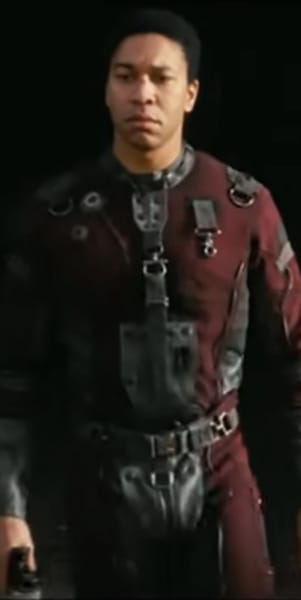
Maximus: Lawful Neutral
Rookie soldier Maximus is practically born into Lawful Evil, speaking of the heartless and ruthlessly organized “Brotherhood of Steel” faction.
However, what makes Maximus fascinating is how neutral he appears regarding morals and opportunity.
He is the type of guy who would watch his bullying Knight master die rather than give him a healing stimpak that he didn’t deserve. He’s also the type of guy to usurp the ex- knight’s suit and pretend to be a Knight himself so that he won’t be discovered and tried for treason.
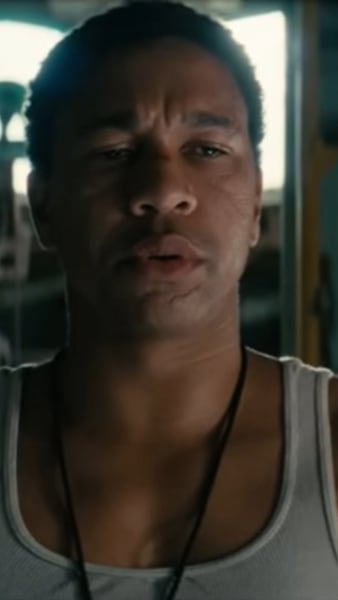
He’s also the type of guy that can be trusted to the extent that he won’t actively try to hurt you. Even if you happen to fall asleep in his presence, Maximus won’t try to steal your organs like most mutants out there.
He may be a tad cynical compared to his traveling buddy Lucy, and yes, he did recognize a pair of cannibal “fiends” within seconds of looking at them.
Can you blame a war veteran who’s only seen the selfishness of humans in this Fallout universe?
Ultimately, Maximus is mainly motivated by a logical sense of self-preservation.
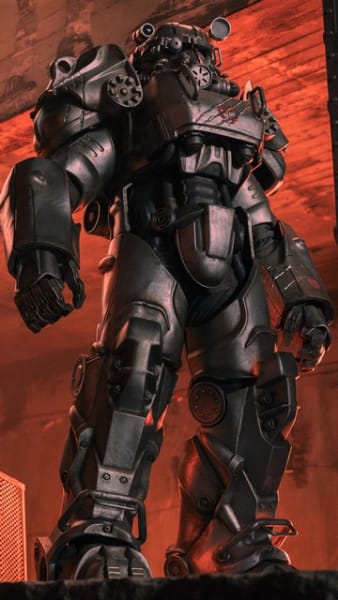
He’s not cowardly since he has come to Lucy’s aid and even tried to negotiate a truce with his fellow Brotherhood member Thaddeus, who later betrays him and leaves him to die.
If anything, he’s lawful neutral because the Brotherhood of Steel conditioning still guides his conscience.
It’s why he tends to resist Lucy’s advances, at least at first, because he considers himself loyal to the precepts of Right and Wrong.
Ironically, the Brotherhood of Steel would kill Maximus the second he turns himself in, so he’s on an adventure of Lawful Neutral turning into Neutral.
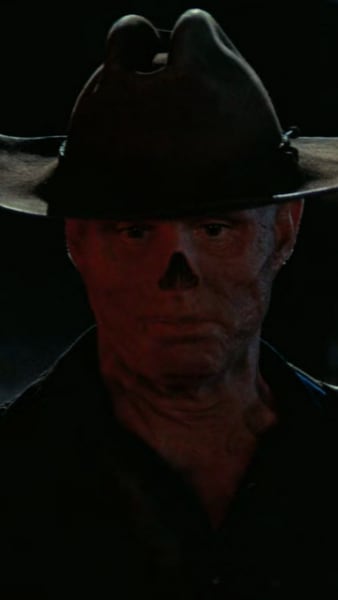
The Ghoul / Cooper Howard: Lawful Evil
Both Hollywood actor Cooper Howard and “The Ghoul” seem detached from humanity in general.
Cooper starts as a marine and a cowboy who was suckered into Hollywood and hawking Vault products. It was a world he was just about ready to leave behind – before he saw the world collapse.
At least he was proud to be an American, or what was left of America, as he always thought capitalism was synonymous with freedom. Everything about Cooper Howard suggested he was careless or oblivious of anything or anyone outside his worldview.
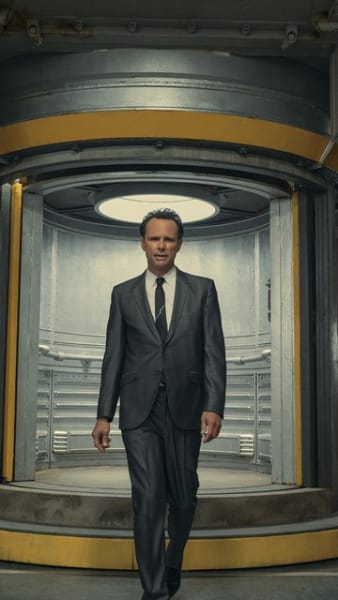
But after 200 years, and after radiation transformed him into a perpetually dying ghoul, Cooper has become on the outside what his soul was inside.
He now works as a bounty hunter and fully embraces a live-and-let-die philosophy that sees him kill his enemies and leave his unscrupulous acquaintances in the lurch.
The way he kills his attackers in seconds, even when kidnapped and sentenced to death by the likes of good ole boy Sorrel Booker, suggests he has lived a violent life far from lawful.
The Ghoul has become Evil to survive Evil. He also thinks nothing of taking a finger for a finger and holding goody two shoes Vault dwellers hostage if he can trade her for chems and vials.
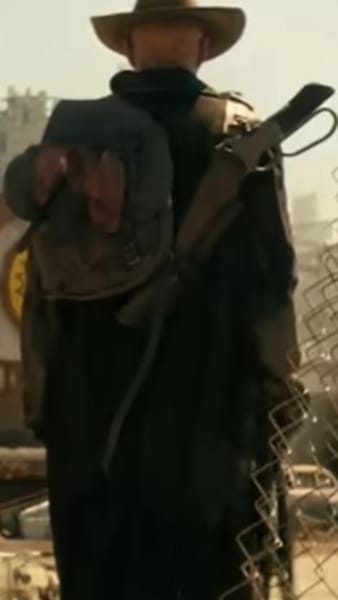
But while Evil may have won and kept the Ghoul captive in an evil world, the Ghoul still lives by his code of ethical behavior.
He refrains from killing people who don’t threaten him. He keeps people alive that he finds amusing.
He may even have a soft spot for old friends who try to kill him…after all, nobody seems to like ghouls; since it’s an unfortunate stereotype, they all go feral. (I blame the influence of The Walking Dead).
He’s far from lawful, but this outlaw is still trying to remember his humanity, even if it’s buried underneath layers of ashes.
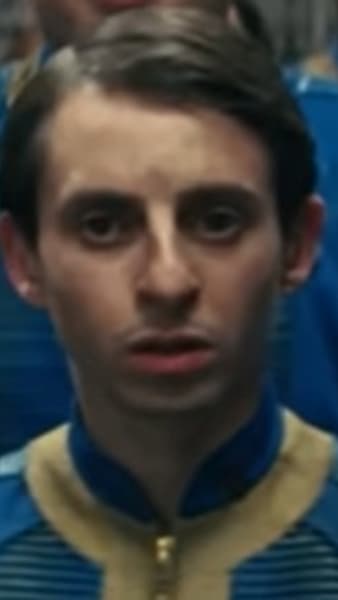
Norm MacLean: Chaotic Good
Norm, Lucy’s brother, has been busy discovering Vault conspiracies, alerting some of the Vault 33 Governing Council, including Betty, Woody, and Reg, who wonder why he has so many questions.
His rebellious, polite attitude has ruffled many feathers and given Norm.
He’s the proverbial nice guy and vertically challenged underdog, a new role as a Chaotic Good whistleblower.
Thaddeus: Lawful Evil
Thaddeus is another member of the Brotherhood of Steel and, for a time, was honored to serve Maximus as squire — until he discovered that Maximus was, in fact, an imposter, a squire hiding behind a knight’s armor.
He was also one of several Brotherhood Steel bros who looked down on Maximus when he was just a soldier in training.
When the time comes, Thaddeus betrays Maximus with hardly a thought, showing he values law above friendship, even to the extent of letting one of his friends die for a victimless crime.
Well, with respect to Knight Titus, he was a jerk, and it was a stroke of brilliance to have him played by the human chalkboard, Michael Rapaport.

Siggi Wilzig: True Neutral
At one time a respected and dangerous scientist and now a disembodied head with hardly a word to say, Siggi never explained himself, nor is it entirely known why his brain is so notorious.
I can only classify him as True Neutral since, for the Fallout world’s most dangerous man, he had very polite manners and took good care of his dog.
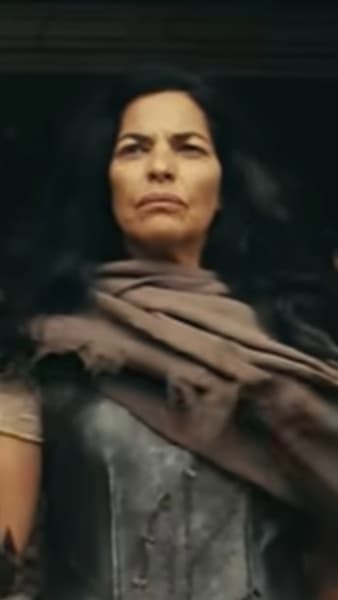
Lee Moldaver: Neutral Evil
Moldaver is a reasonably complicated politician, the catalyst for Lucy MacLean’s journey into the unknown, and the series’s primary antagonist. She puts the welfare and enrichment of her people ahead of the rest of humanity, even going so far as to go full terrorist and invade Vault 33 under a ruse of friendship.
While she ultimately has a plan that stops her from joining Chaotic characters such as Fiends or those pesky Radroaches, she is far too deadly a force of nature to forgive. She represents the worst of the New California Republic.
Unless we’re ready to admit Rick Grimes of The Walking Dead was a menace, too… (but let’s not), we’ll keep Moldaver as Neutral Evil.
Chet: Lawful Neutral
Chet is just in everyone’s way, as of Season 1, but with entirely selfish and hormonal intentions — which are not necessarily breaking any law.
He was lovesick over his cousin Lucy and couldn’t resist even the pregnant, lonely, and possibly confused Steph, even though Chet had the worst timing.
The boy is not right in the head, and it’s hilarious that the best-looking character in the show has taken a backseat to the more *interesting* faces of the cast, which are a throwback to 1920s Hollywood horror movies.
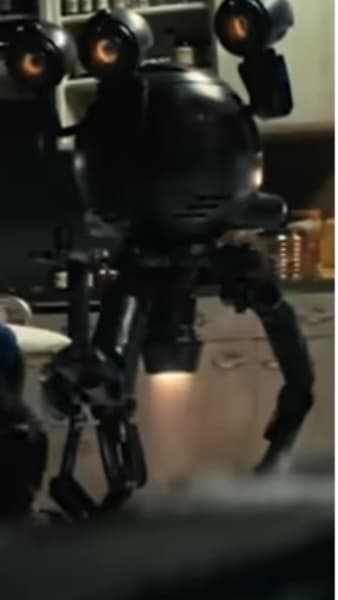
Snip-Snip: Chaotic Neutral
Immortalized by the voice of Matt Berry of The IT Crowd fame and Merkimer in Disenchantment, Snip-Snip is a robotic unit gone efficiently mad.
It’s programmed to be concise and polite, all the while harvesting undesirable humans for their organs.
The morality of AI on this bot is questionable, but otherwise, the technology is brilliant.
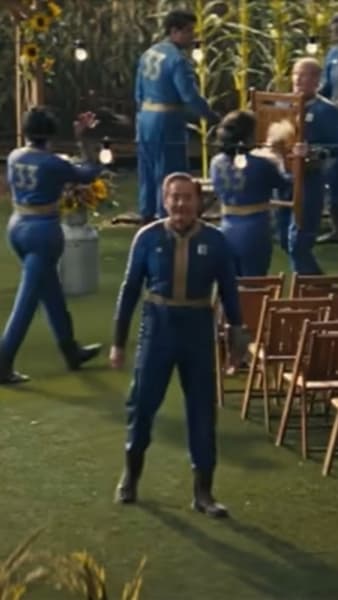
Vault Leaders: Lawful Neutral
There is something creepy going on with Vault leadership, whether we’re discussing the new Overseer Benjamin of rogue Vault 4 or even the Vault 33 Council, including Betty Pearson, who goes on to be elected Overseer of 33.
They all seem to know something and are conveniently absent when trouble arises.
They’re not exactly evil in terms of stated goals and claim to follow a greater good, which points to Lawful. But until their sinister secrets are brought out into the open, I have to put them in Neutral — meaning best avoided.
Hank MacLean…Either Chaotic Evil or Lawful Good?
There is one true question mark of Fallout — Hank.
Hank has demonstrated admirable bravery even in the face of death and fine leadership skills, all the while keeping dark secrets about who-knows-what that his children are still uncovering.
Who else but Kyle MacLachlan could do him justice, a survivor of a Lynchian pre-apocalyptic world perhaps even more bizarre than the one we’ve seen in Fallout?
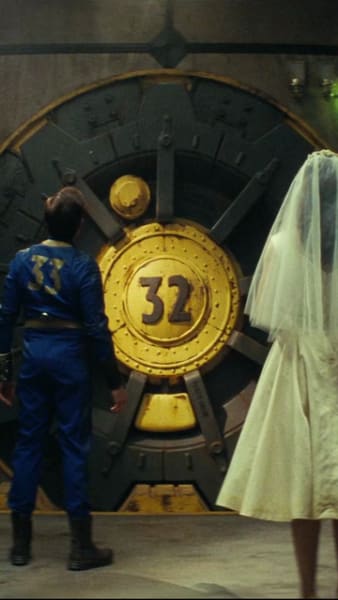
Jonathan Nolan Finds the Heart of Fallout
While Fallout was a fantastic open-world game with character complexities ahead of its time, it took the wordsmithing of Jonathan Nolan (brother of Christopher, who shared much of the writing responsibilities on films like The Dark Knight) to bring out the one thing that was always missing in the Fallout video game series.
Heart!
Through various characters struggling to find or keep their heart in a world gone surreally and hilariously mad, Nolan has done one better than Frank Darabont did with the uncompromising and bleak Walking Dead debut and turned this 30-year-old post-apocalyptic war RPG into a love note.
Edit Delete
Michael Arangua is a staff writer for TV Fanatic. You can follow him on X.





